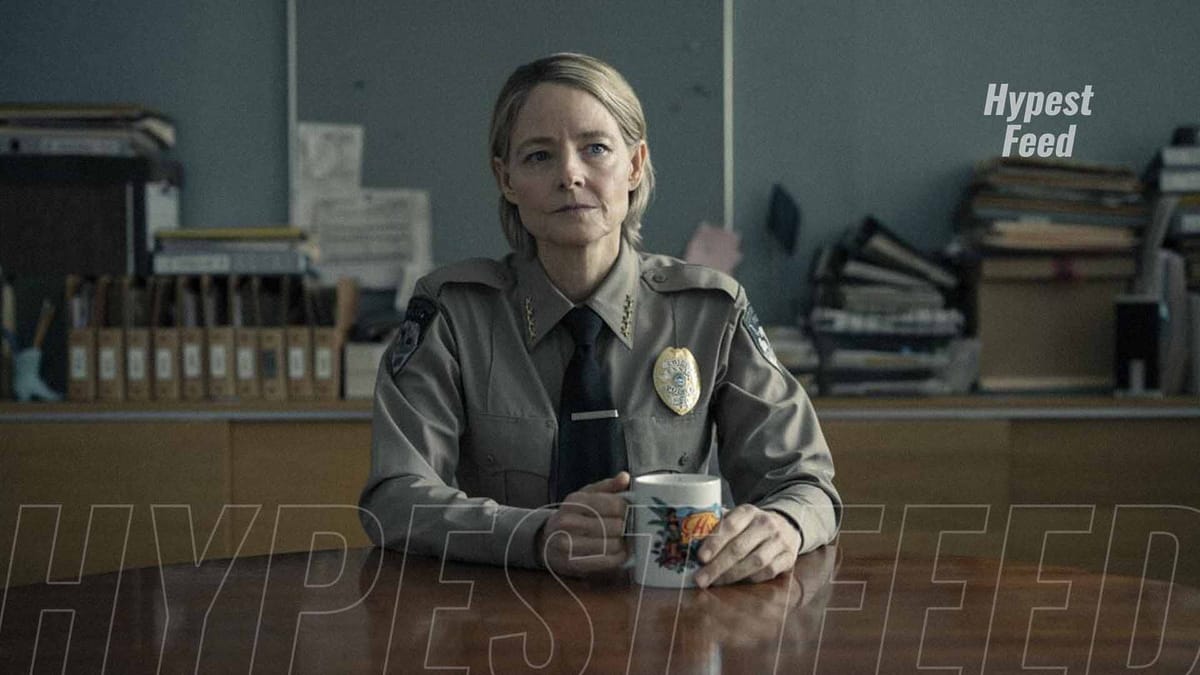The HBO detective drama concluded with a gripping finale that left fans pondering some significant questions, but many found the ambiguity added to its appeal.
Last night marked the conclusion of the highly-discussed TV drama, "Night Country," the latest addition to the True Detective series, captivating viewers with its Alaskan backdrop. While the police procedural wrapped up with a riveting climax, it left lingering mysteries, a daring move that divided fans but showcased the series' confidence in its blend of rational and mystical storytelling.
Caution: This article includes spoilers for the conclusion of True Detective: Night Country.
Similar articles you may enjoy:
- A Fresh Take: Exploring "The New Look," a Compelling Wartime Drama
- What to Watch: Top TV Picks for February
- Notable Omissions: Discussing the Biggest Snub at the Recent Emmys
Absolutely, HBO's crime anthology made a strong comeback in its fourth season, marking a significant improvement from the lackluster second and third seasons. Although it didn't quite reach the level of the outstanding debut, it shone as a compelling inverse, as described by showrunner Issa López. Departing from the formula of two male detectives in the sweltering Deep South, López delivered a gripping narrative with two female investigators in the chilling landscapes of the far North.

The combination of Matthew McConaughey and Woody Harrelson in the earlier seasons set a high bar, but Night Country's leads, Jodie Foster and Kali Reis, delivered outstanding performances. The series was both thrilling and atmospheric, with a captivating climax in the eerie ice caves near Ennis. The revelation of the killers, the Native Alaskan women seeking revenge for past injustices, added a feminist twist to the genre.
Throughout the series, there were three main areas of debate. Firstly, whether it truly fit within the True Detective brand without creator Nic Pizzolatto's involvement. Secondly, the divisive reaction to Billie Eilish's theme song, which director López found inspiration in during lockdown. And finally, the blend of crime drama and supernatural elements, leaving viewers questioning what was real and what was otherworldly in the finale.
In a post-finale interview with the LA Times, López discussed how the show's lingering mysteries could be interpreted either supernaturally or logically, depending on the viewer's preference.
For instance, the mystery of Annie K's severed tongue could be explained as a result of corrupt police officer Hank's actions or seen as a symbolic incident representing Annie's silenced story finally being told. The recurring spiral symbol throughout the series could be a callback to previous seasons, a natural occurrence, or a warning sign, leaving room for multiple interpretations.
Ghosts were another theme, serving as a way for characters to confront their past and deal with guilt and grief. The disappearance of Navarro was left ambiguous, with the final moments suggesting that both she and Danvers found peace, whether in body or spirit.
López drew inspiration from various films and directors like Stanley Kubrick and David Lynch, aiming to create a narrative that doesn't provide easy answers but encourages viewers to form their own conclusions. She described this ambiguity as both a gift and a curse, challenging viewers to navigate between genre and realism.
While some may find the vague resolution frustrating, others may appreciate the opportunity for discussion and interpretation, making the Night Country finale a triumph for those who enjoy cryptic storytelling.



Member discussion: